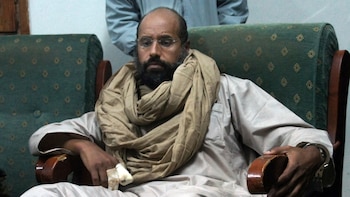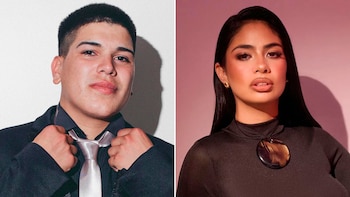
BEIJING - There is a new Forbidden City in the Chinese capital. This isn’t the famous wooden palace, one of the top tourist attractions in the world.
It’s a city called the “Closed Loop,” populated by thousands of people associated with the Beijing 2022 Winter Olympic Games. Once they enter, they are forbidden to leave. Signs say “Closed Loop Area. Please Don’t Cross the Line.”
And it is quite an ordeal to get inside.
The International Olympic Committee (IOC) and Beijing organizers instituted the Closed Loop as part of “the necessary COVID-19 countermeasures that will enable the Games to take place safely and successfully,” according to the “playbooks” that dictate all procedures.
The playbook for media, international officials, Olympic and Paralympic family, sponsors and workforce is 84 pages. The playbook for athletes and team officials is only 70 pages.
While everyone no doubt feels privileged to attend these Games — with foreign spectators barred and Chinese spectators limited — the journey is like navigating a slalom course. Each requirement is a gate that cannot be missed or the penalty is disqualification.
There are rules for fully-vaccinated visitors who have never had COVID-19, fully-vaccinated visitors who have contracted COVID-19 and non-vaccinated visitors, who undergo a 21-day quarantine.

Sixteen of the pages in the media playbook bear the heading, “Test, Trace and Isolate,” and others include “Minimize Physical Interaction,” and “Think Hygiene.” Both playbooks end with “Compliance and Consequences,” which is rather ominous given the joyous spirit of the Olympics.
As one media member told Around the Rings, these Olympic Games already have three strikes against them, “It’s COVID, it’s China and it’s winter.”
The Beijing 2008 Games had the Olympic Green. The Beijing 2022 Games have the Green Code. The Olympic Green was a happy gathering place. The Green Code is the health approval by the Chinese embassy or consulate that is required just to board the flight to Beijing.
Fully-vaccinated visitors must begin recording health checks on an app or website beginning 14 days before departure. This includes temperature and a questionnaire about possible COVID-19 symptoms. There are admonishments if a day is missed.
Similar to the Tokyo 2020 Games last summer, participants must undergo COVID-19 tests within 96 hours and within 72 hours of their final flight to Beijing. However, these tests must be specific nasopharyngeal tests conducted at sites approved by the Chinese embassy or the relevant consulate. Approved sites were extremely limited. In the southern United States, for example, there were only two and both were in Houston, Texas.

The COVID Liaison Officers, or CLOs, for the stakeholders could apply for additional sites. While many chains that conduct testing, each franchise had to be approved individually. By mid-January, there was a significant increase in testing sites, but that was cutting it close. And then the time for an embassy or consulate to issue the Green Code could take eight to 12 hours. With some athletes bouncing between countries, there was confusion over where they could take their tests.
On a message board dedicated to CLOs, the pleas for help became increasingly desperate as departure dates were getting closer.
Of course, that was assuming the accredited people were able to obtain a flight. Normally, travel to the Games is arranged well in advance and on itineraries chosen by the ticket holders. But the Chinese government allowed only certain airlines to fly into Beijing from hubs such as Paris, Tokyo and Singapore. Stakeholders had to speak directly with a representative of the airline and many flights were not finalized until January.
Originally, Japan Air Lines had only two flights departing Beijing. One was at 2:25 a.m. on February 20, which would mean missing the final events including four-man bobsled, men’s gold medal hockey game and the Closing Ceremony. The other was on February 25. More flights eventually opened up.
When journalists compared notes, usually the word “nightmare,” was part of the conversation.
Before the Tokyo Olympics in July, participants marveled at how the flights to Japan were so empty.
En route to Beijing, they grumbled that they were too full. Every time someone coughs, people flinch.

On flights from the hub cities to Beijing, participants had to include their seat number on the customs health form so close contacts could be located. A close contact is someone in the seat to either side and people two rows in front and two rows behind. In Tokyo, a close contact could be quarantined for 14 days. The restrictions are less stringent for Beijing, but can still disrupt the lives of those affected.
One question on the customs health form is tricky: “Has your community reported any COVID-19 cases during the past 14 days?”
A journalist told Around the Rings that someone from the United States answered “yes.” There had been thousands of cases in his community, where the Omicron variant had run rampant. He was detained at the airport.
More savvy travelers interpreted “community” to mean immediate family and answered “no.”
Upon arrival at the Beijing airport, the airplane doors open to reveal a scene out of “E.T.” where the extraterrestrial has been captured by scientists, or the Dustin Hoffman movie, “Outbreak.”

Workers wearing hazmat suits with the Beijing 2022 logos — the souvenir of the Games? — greet the travelers and escort them through the airport. Both welcoming and wary, they take them in groups to kiosks, which generate the coveted customs QR code. A photographer using professional equipment is told “No photos,” but people use their phones to snap pictures.
At passport control, everything is scrutinized before getting the seal of approval, in red ink, of course.
Then it is on to testing. While Tokyo organizers conducted saliva tests, these tests are swabs of both throat and nose. The throat swab is invasive, but the nose swab takes the gold medal for depth. There is also a picture to commemorate the occasion.
Passengers then have their accreditation cards validated, pick up their baggage and are transported to their hotels by buses that leave in a convoy. The promise of social distancing is not kept on buses to the more popular hotels. At the hotels, people can check in, but must wait up to six hours to find out the results of their test.
A telephone call from the front desk means they are free to leave their rooms. A knock on the door by medical personnel means a trip to an isolation hotel and a lot of angst.
Participants are tested with a throat swab daily and are monitored to make sure they do not miss a test.
Oddly, people and baggage making their first entrance to the hotels do not go through the metal detectors and scanners at the front doors. Instead, they go through them on the way out, including a full body scan by wand, so they are accepted into the Closed Loop.
The Closed Loop includes all hotels, villages, venues, and training sites, non-competition venues and other permitted destinations, within the zones of Beijing, Zhangjiakou and Yanqing.

The buses that travel through Beijing pass banners and signs with the Beijing 2022 mascots, Bing Dwen Dwen, the panda encased in a suit of ice, and Shuey Rhon Rhon, the Chinese lantern.
“Together for a Shared Future,” says the slogan.
For the next two months — through the Olympic and Paralympic Games — that shared future is in the Closed Loop. A trip to the real Forbidden City is not allowed.
But for most of the people here, they would not want to be anywhere else.
Últimas Noticias
Sinner-Alcaraz, the duel that came to succeed the three phenomenons
Beyond the final result, Roland Garros left the feeling that the Italian and the Spaniard will shape the great duel that came to help us through the duel for the end of the Federer-Nadal-Djokovic era.
Table tennis: Brazil’s Bruna Costa Alexandre will be Olympic and Paralympic in Paris 2024
She is the third in her sport and the seventh athlete to achieve it in the same edition; in Santiago 2023 she was the first athlete with disabilities to compete at the Pan American level and won a medal.

Rugby 7s: the best player of 2023 would only play the medal match in Paris
Argentinian Rodrigo Isgró received a five-game suspension for an indiscipline in the circuit’s decisive clash that would exclude him until the final or the bronze match; the Federation will seek to make the appeal successful.

Rhonex Kipruto, owner of the world record for the 10000 meters on the road, was suspended for six years
The Kenyan received the maximum sanction for irregularities in his biological passport and the Court considered that he was part of a system of “deliberate and sophisticated doping” to improve his performance. He will lose his record and the bronze medal at the Doha World Cup.

Katie Ledecky spoke about doping Chinese swimmers: “It’s difficult to go to Paris knowing that we’re going to compete with some of these athletes”
The American, a seven-time Olympic champion, referred to the case of the 23 positive controls before the Tokyo Games that were announced a few weeks ago and shook the swimming world. “I think our faith in some of the systems is at an all-time low,” he said.




